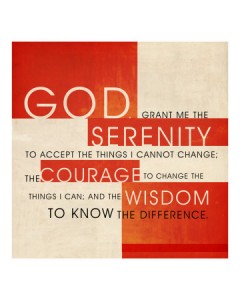
“I hope we can be friends.” This is not an uncommon wish of one or both people when going through a divorce. Sometimes, however, there is a lot of pain and anguish going on for at least one of them and significant negative energy between the couple. “How did we get like this?” is another frequent question I hear in my practice. So how do we answer the question and can you become friends? It is helpful to think about how relationships develop in order to answer the question. I heard Isolina Ricci, speak to a group of mental health professionals and attorneys about her research around divorce and families a couple years ago. She introduced a very helpful concept that I often share with clients to help them understand whether and how they can be friends.
When we meet people, we start with a business relationship. We use more formal language, make few assumptions, make clear agreements, have minimal expectations and are not very attached to or invested in the relationship.
Ricci notes that we are private, explicit, cool and reserved. As we get to know someone and move to friendship, we are less formal, begin to make assumptions and have expectations and are therefore more invested in the relationship. When the relationship becomes intimate, we become very informal with each other, act based on assumptions formed from past experiences with the individual, give the benefit of the doubt, and are very invested in the relationship. Ricci notes that we are vulnerable, implicit, hot and intense.
However, when we reach the point of divorce, the relationship has moved from one of positive intimacy to negative intimacy. We move from the positive qualities of intimacy to the opposite of those qualities, (i.e., shared to abused confidences, loyalty and trust to disloyalty and distrust, positive assumptions to negative assumptions, benefit-of-doubt to suspicion and blame, for example). What we need to realize is that when we are in a place of negative intimacy, we cannot simply go back to friendship. In order to become friends, we need to move from negative intimacy back to the business relationship and then rebuild to friendship from there. Ricci calls this the
detox-negative-intimacy, where we reset to a business-like relationship.
In the
Collaborative process, we actually help people learn how to step back to the business relationship by modeling respectful communication, not make assumptions but ask questions to clarify, strive to be trustworthy, make clear agreements, create healthy boundaries relating to times and means of communication, and sticking to facts rather than being emotionally reactive. And this is very hard work! But, by making the intentional effort to go back to a business relationship, we can start rebuilding trust by honoring agreements, getting rid of unproductive assumptions by asking clarifying questions, and redeveloping a give-and-take relationship. Over time, it is possible to create a business like friendly relationship.
 My parents are 87 years old and I have recently had to face their realities which include limited mobility, increased health problems, and questions about whether they should stay in their home, go to an assisted living facility, or get in home care.
It has been hard to talk to them about these issues in part because they are still mentally sound , happily living independently at the end of a dirt road at the edge of the Superior National Forest and enjoying the birds and wildlife which they can only see there.
It was hard to make the phone call to them last winter suggesting that a drive at night to a special event one and a half hours from their home was not a good idea. Recently, after my mother suffered several falls resulting in hospital stays, it was hard to talk to her about the assisted care options . I found a good resource with the Minnesota Senior Link at 1-800-333-2433. I talked to someone who gave me a list of resources in their area.
These are decisions made by families every day. My family includes my parents, sister and brother, and extended family.
Luckily, we seem to be able to communicate and agree on what needs to be done. But there are some families where there are substantial disagreements and conflicts, or no communication at all. For those with disagreements, the collaborative process offers a way to resolve disputes. See www.collaborativelaw.org for professionals who can help you resolve these disagreements.
My parents are 87 years old and I have recently had to face their realities which include limited mobility, increased health problems, and questions about whether they should stay in their home, go to an assisted living facility, or get in home care.
It has been hard to talk to them about these issues in part because they are still mentally sound , happily living independently at the end of a dirt road at the edge of the Superior National Forest and enjoying the birds and wildlife which they can only see there.
It was hard to make the phone call to them last winter suggesting that a drive at night to a special event one and a half hours from their home was not a good idea. Recently, after my mother suffered several falls resulting in hospital stays, it was hard to talk to her about the assisted care options . I found a good resource with the Minnesota Senior Link at 1-800-333-2433. I talked to someone who gave me a list of resources in their area.
These are decisions made by families every day. My family includes my parents, sister and brother, and extended family.
Luckily, we seem to be able to communicate and agree on what needs to be done. But there are some families where there are substantial disagreements and conflicts, or no communication at all. For those with disagreements, the collaborative process offers a way to resolve disputes. See www.collaborativelaw.org for professionals who can help you resolve these disagreements.  My parents are 87 years old and I have recently had to face their realities which include limited mobility, increased health problems, and questions about whether they should stay in their home, go to an assisted living facility, or get in home care.
It has been hard to talk to them about these issues in part because they are still mentally sound , happily living independently at the end of a dirt road at the edge of the Superior National Forest and enjoying the birds and wildlife which they can only see there.
It was hard to make the phone call to them last winter suggesting that a drive at night to a special event one and a half hours from their home was not a good idea. Recently, after my mother suffered several falls resulting in hospital stays, it was hard to talk to her about the assisted care options . I found a good resource with the Minnesota Senior Link at 1-800-333-2433. I talked to someone who gave me a list of resources in their area.
These are decisions made by families every day. My family includes my parents, sister and brother, and extended family.
Luckily, we seem to be able to communicate and agree on what needs to be done. But there are some families where there are substantial disagreements and conflicts, or no communication at all. For those with disagreements, the collaborative process offers a way to resolve disputes. See www.collaborativelaw.org for professionals who can help you resolve these disagreements.
My parents are 87 years old and I have recently had to face their realities which include limited mobility, increased health problems, and questions about whether they should stay in their home, go to an assisted living facility, or get in home care.
It has been hard to talk to them about these issues in part because they are still mentally sound , happily living independently at the end of a dirt road at the edge of the Superior National Forest and enjoying the birds and wildlife which they can only see there.
It was hard to make the phone call to them last winter suggesting that a drive at night to a special event one and a half hours from their home was not a good idea. Recently, after my mother suffered several falls resulting in hospital stays, it was hard to talk to her about the assisted care options . I found a good resource with the Minnesota Senior Link at 1-800-333-2433. I talked to someone who gave me a list of resources in their area.
These are decisions made by families every day. My family includes my parents, sister and brother, and extended family.
Luckily, we seem to be able to communicate and agree on what needs to be done. But there are some families where there are substantial disagreements and conflicts, or no communication at all. For those with disagreements, the collaborative process offers a way to resolve disputes. See www.collaborativelaw.org for professionals who can help you resolve these disagreements. 

 It occurs to me that just as in the rest of our lives, some of the best things in divorce are free.
Here are more than a few free items that I came up with on a recent afternoon.
Initial Consultation
Most importantly, many atttorneys and other divorce professionals offer free (or low cost) initial consultations to help you understand your options. I enjoy offering free consultations because I can make the most impact on a person’s life by helping them at the very beginning before they waste time and money.
General Divorce Information
It’s free to keep reading this blog! There are many helpful articles to help guide your decisions. You can learn what is involved in divorce and how to choose professionals to help you with the divorce process.
Read my Family Law blog called Always Family Center for free information about many Family Law topics.
Learn more about Collaborative Divorce
It occurs to me that just as in the rest of our lives, some of the best things in divorce are free.
Here are more than a few free items that I came up with on a recent afternoon.
Initial Consultation
Most importantly, many atttorneys and other divorce professionals offer free (or low cost) initial consultations to help you understand your options. I enjoy offering free consultations because I can make the most impact on a person’s life by helping them at the very beginning before they waste time and money.
General Divorce Information
It’s free to keep reading this blog! There are many helpful articles to help guide your decisions. You can learn what is involved in divorce and how to choose professionals to help you with the divorce process.
Read my Family Law blog called Always Family Center for free information about many Family Law topics.
Learn more about Collaborative Divorce 


 These poetic words are often ringing in my ears when I sit with a divorcing couple hoping that they might be able to summon their best selves during difficult times. Divorce can be so emotionally challenging that it is easy to excuse people who cannot bring their better angels to the process. It would be wrong to judge anyone who, when facing divorce, becomes so blinded by fear or anger that they seem unable to summon their better natures.
Yet, as a
These poetic words are often ringing in my ears when I sit with a divorcing couple hoping that they might be able to summon their best selves during difficult times. Divorce can be so emotionally challenging that it is easy to excuse people who cannot bring their better angels to the process. It would be wrong to judge anyone who, when facing divorce, becomes so blinded by fear or anger that they seem unable to summon their better natures.
Yet, as a
 Many recovering alcoholics claim that the wisdom of The Serenity Prayer saved their life. I have found in my practice that the wisdom contained in this simple prayer can also serve as an essential guide for helping people through a difficult divorce.
The Serenity Prayer, which asks for the serenity to accept the things you cannot change; the power to change the things you can and the wisdom to know the difference, provides an important framework for dealing with almost all difficult situations.
Divorce almost always creates unfortunate realities that lie outside our control; the fact that you will not see your children on certain days; the reality that your family income will now be spread through two homes; and many other stubborn truths. These realities cannot be changed and, in the end, the ability to find acceptance and serenity is a worthy goal.
Divorce also requires people to summon courage to address daunting challenges; finding ways to co-parent when you are angry or scared; learning to manage new financial challenges; or trying to communicate effectively in painful situations. People who find this courage in divorce are much more likely to achieve their goals.
Finally, gaining wisdom about which areas need acceptance and which challenges require us to act courageously is often the ultimate challenge in a divorce. While some of this wisdom may come from
Many recovering alcoholics claim that the wisdom of The Serenity Prayer saved their life. I have found in my practice that the wisdom contained in this simple prayer can also serve as an essential guide for helping people through a difficult divorce.
The Serenity Prayer, which asks for the serenity to accept the things you cannot change; the power to change the things you can and the wisdom to know the difference, provides an important framework for dealing with almost all difficult situations.
Divorce almost always creates unfortunate realities that lie outside our control; the fact that you will not see your children on certain days; the reality that your family income will now be spread through two homes; and many other stubborn truths. These realities cannot be changed and, in the end, the ability to find acceptance and serenity is a worthy goal.
Divorce also requires people to summon courage to address daunting challenges; finding ways to co-parent when you are angry or scared; learning to manage new financial challenges; or trying to communicate effectively in painful situations. People who find this courage in divorce are much more likely to achieve their goals.
Finally, gaining wisdom about which areas need acceptance and which challenges require us to act courageously is often the ultimate challenge in a divorce. While some of this wisdom may come from 
